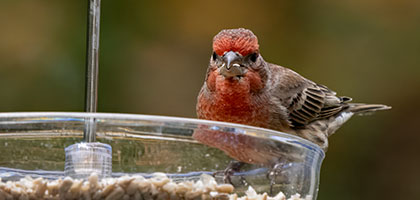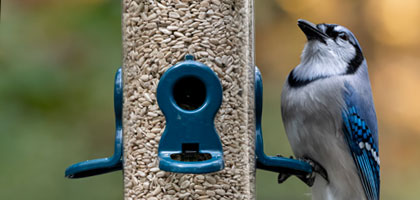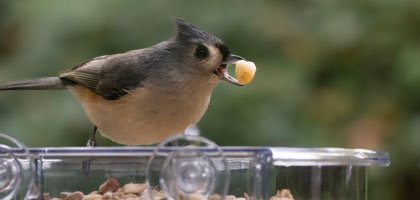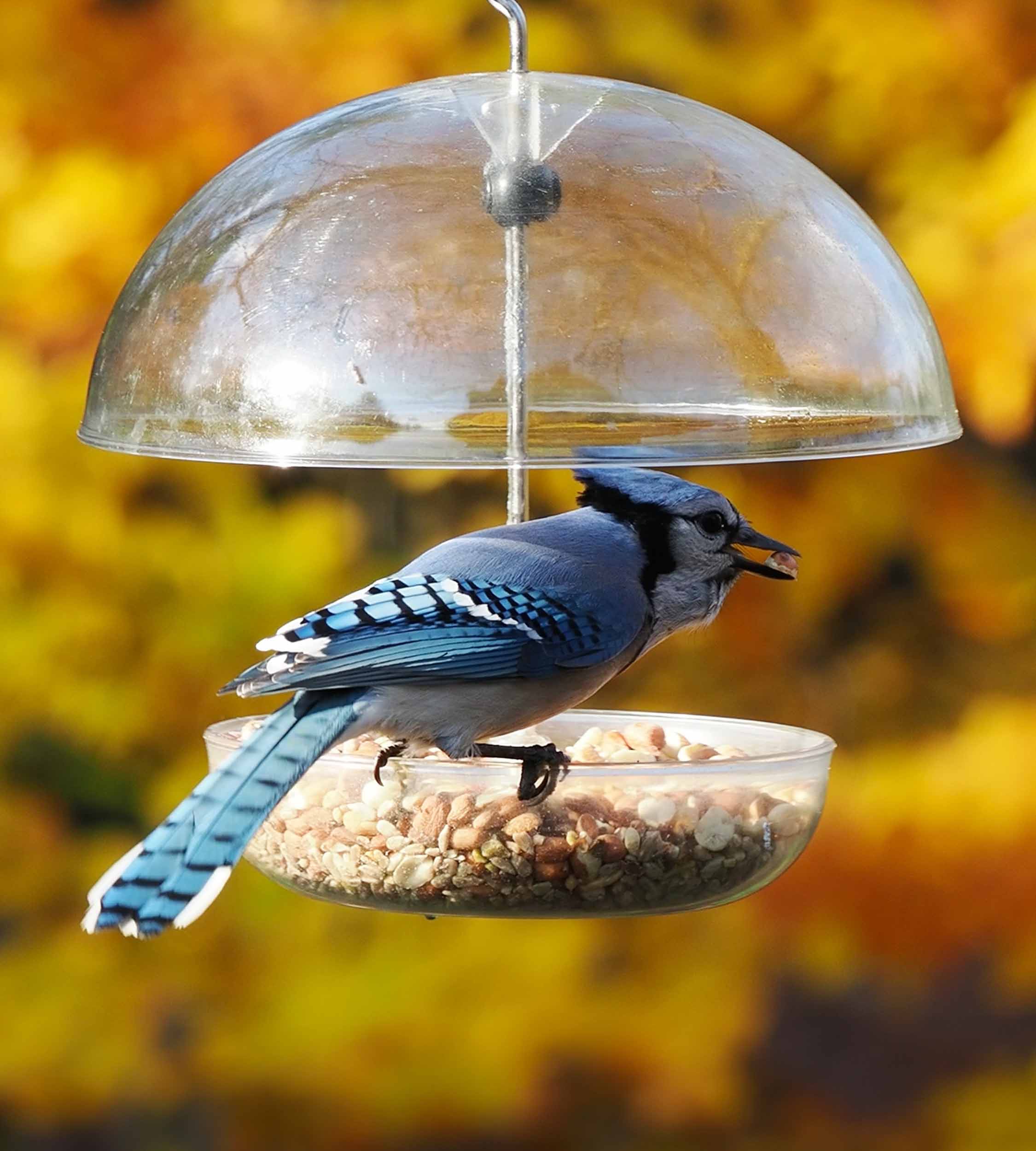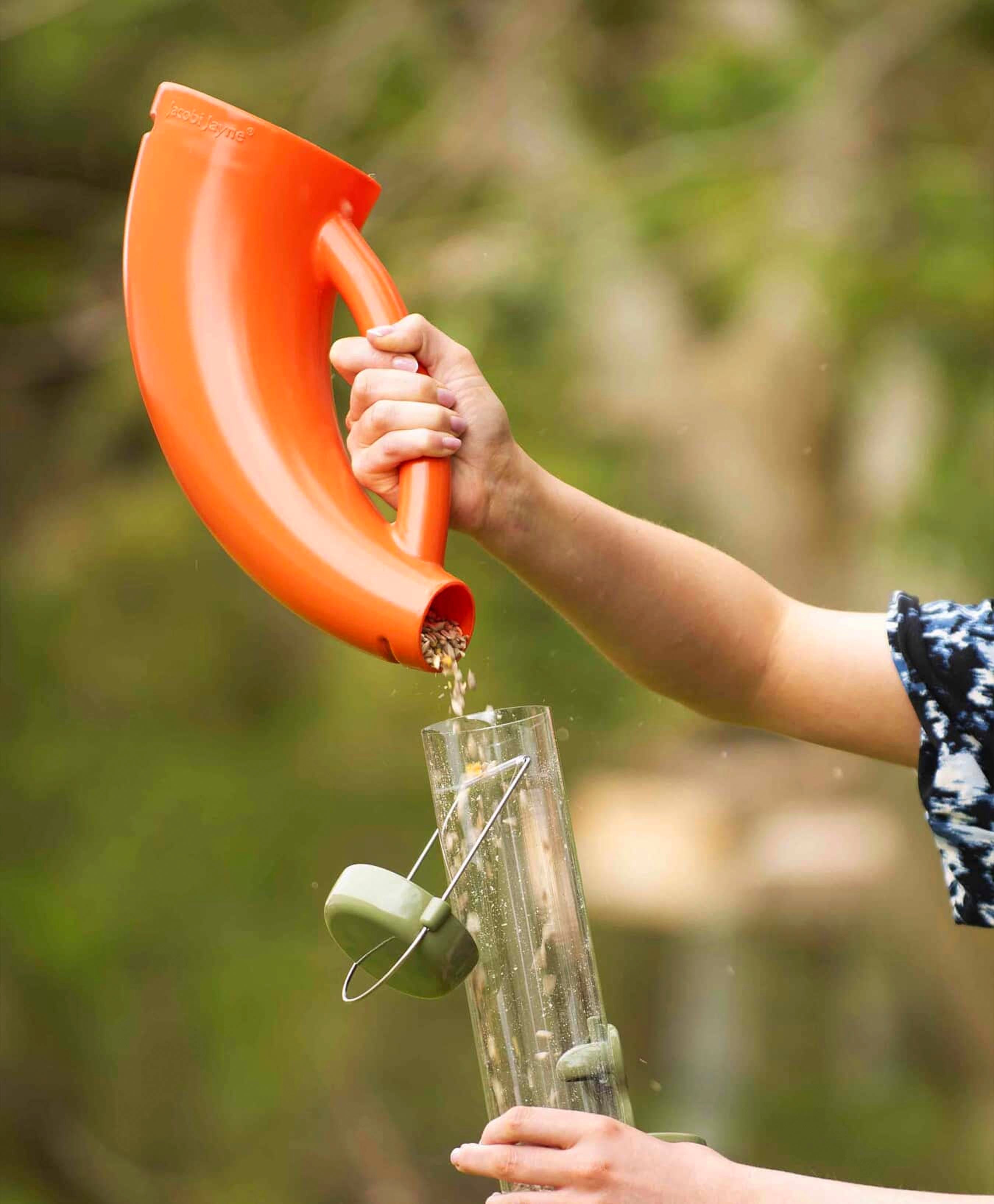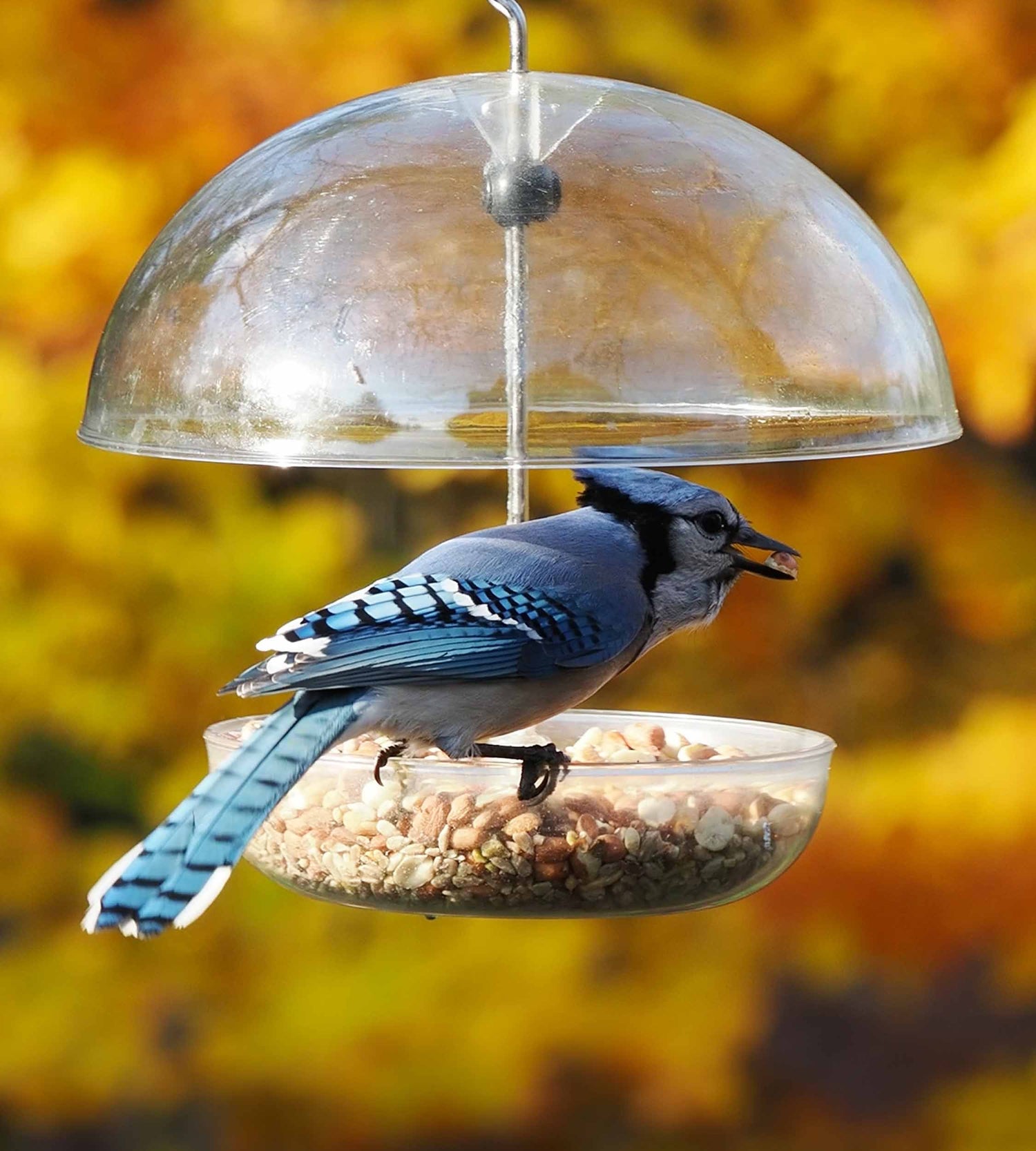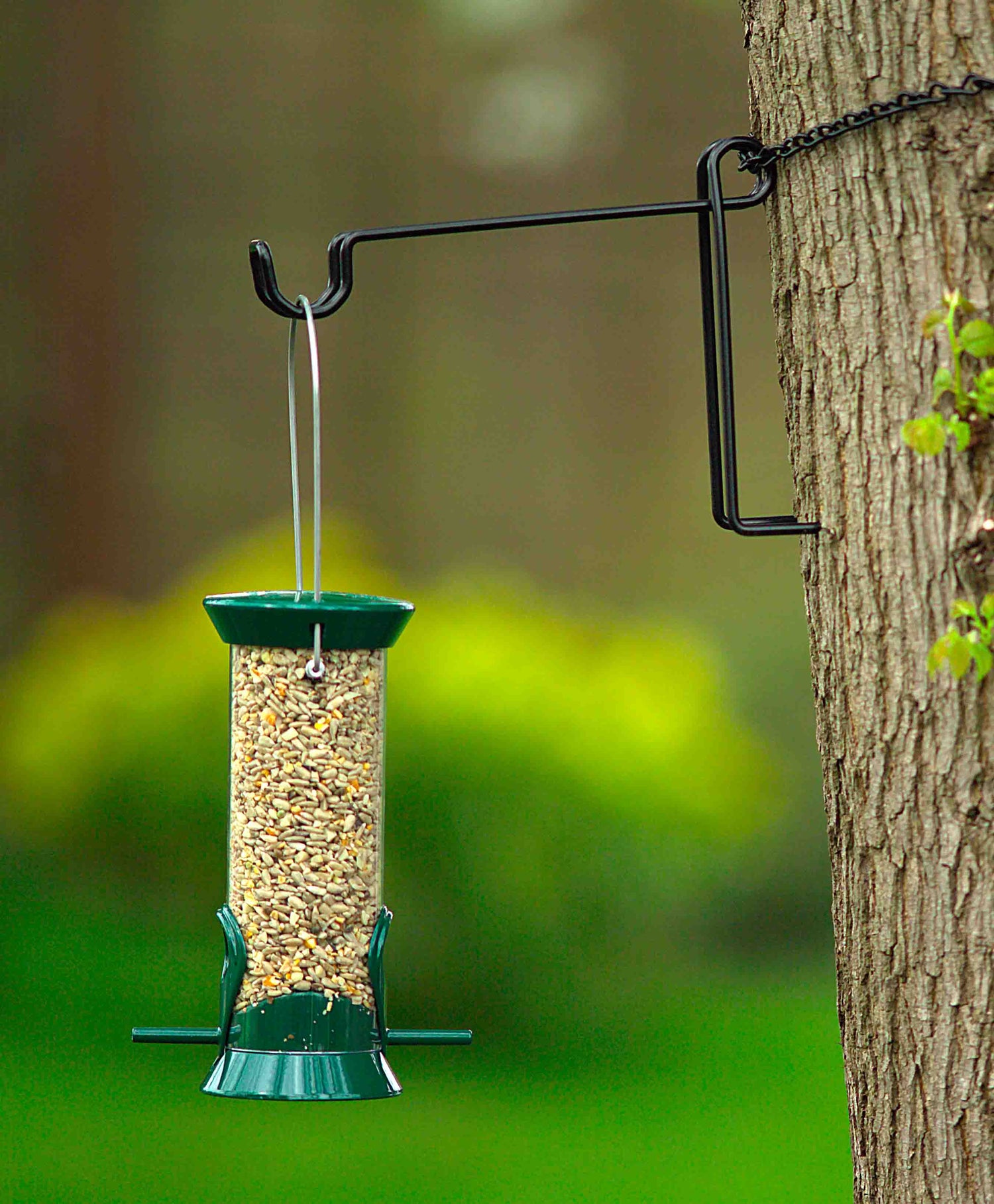Storing bird food properly is crucial for maintaining its freshness and nutritional value. It also helps prevent spoilage and deter pests.
Different types of bird food require different storage methods. Understanding these methods can help you keep your bird food in optimal condition.
This guide will provide you with essential tips on how to store bird food effectively. It will cover everything from choosing the right containers to identifying signs of spoilage.
Whether you're a bird owner, a bird watcher, or simply someone who enjoys feeding wild birds, this guide is for you. Let's dive in and learn how to keep your bird food fresh and nutritious.
Understanding the Importance of Proper Bird Food Storage
Proper bird food storage plays a critical role in keeping it fresh and nutritious. Fresh food supports bird health and ensures the birds you feed receive all necessary nutrients.
Inadequate storage leads to mold, pest infestations, and nutritional loss. These issues not only waste your investment but also pose a threat to bird safety. By understanding and implementing correct storage practices, you can avoid these pitfalls and provide a safe, healthy feeding experience for birds.
Identifying the Right Containers for Bird Food Storage
Choosing the right container for bird food storage is crucial. The wrong container can lead to spoilage and pest invasion. Begin by considering the material of the container.
Opt for food-grade materials to prevent chemical reactions with bird food. Metal, glass, or high-quality plastic are preferred. Avoid containers with strong odors which might affect the food's scent.
Airtight containers maintain freshness by blocking moisture and pests. These containers are essential for keeping seeds dry and caking-free. Ensure containers have secure lids to prevent accidental spills and contamination.
Consider these factors when selecting bird food storage containers:
- Material: food-grade, odor-free
- Seal: airtight for freshness
- Design: secure lids to deter pests
- Size: suitable for your storage needs
These criteria help you make informed container choices, ensuring bird food remains safe and fresh longer. This investment in proper storage is vital for your avian friends’ well-being.
The Role of Airtight Containers in Preserving Freshness
Airtight containers are invaluable for bird food storage. They protect food from moisture, pests, and air exposure. These elements can degrade the nutritional quality of the food over time.
By using airtight containers, you seal in freshness and block out damaging factors. This storage method is particularly effective for seeds, which are susceptible to spoilage. Investing in airtight solutions is a simple yet effective way to prolong the shelf life of your bird feed. This ensures your feathered friends always get the best.
Choosing the Ideal Location for Storing Bird Food
Selecting the right spot to store bird food is crucial for preserving its quality. Cool, dry spaces are the best choices as they help maintain the freshness and nutritional value. Avoid locations exposed to direct sunlight, which can cause the food to spoil faster.
Humidity and temperature fluctuations are enemies of bird food longevity. Basements or closets far from windows offer stable conditions for storage. This kind of environment helps to protect the feed from unexpected weather changes.
Keep the storage area tidy and free from strong odors that might affect the food's scent. A clean spot discourages pests and ensures safety for your feathered companions. Regular checks will ensure that the food stays fresh and safe for the birds.
Preventing Spoilage and Infestation
Proper storage techniques are key to keeping bird food safe from spoilage and pests. Spoiled food can harm birds and lead to nutritional deficiencies. Routine inspection of stored food helps catch any signs of mold or rot early.
Pests like rodents and insects often target bird food, leading to contamination. Use airtight containers to create a barrier against these unwelcome visitors. Secure lids and robust materials are effective in deterring these pests.
Here are tips to prevent spoilage and infestation:
- Regularly inspect and clean storage containers.
- Use natural repellents, such as bay leaves, inside storage areas.
- Rotate stock to ensure older food is used first.
Additionally, avoid storing bird food directly on the floor. This prevents moisture absorption, which can cause caking and spoilage. A raised storage spot reduces the risk of pest access and preserves the quality of the feed.
By implementing these strategies, you can keep your bird food safe and fresh for longer.
Tips for Organizing and Rotating Your Bird Food Supply
Keeping your bird food supply organized can make feeding time more efficient and reduce waste. Clear containers help you monitor your supply levels and spot issues like spoilage. For optimal organization, dedicate a specific area exclusively for storing bird food.
Rotating your bird food stock is crucial for maintaining its freshness. Implement a first-in, first-out system to ensure older bird food is used first. This practice minimizes the risk of expired or stale food being offered to your feathered visitors.
Here are some simple tips for efficient organization and rotation:
- Label containers with the purchase date.
- Use stackable containers for space efficiency.
- Store small amounts of bird food if space is limited.
By organizing and rotating your bird food supply, you support bird health and extend the life of your bird food. This attention to detail helps maintain a nutritious diet for your avian friends.
The Benefits of Freezing and Refrigeration
Freezing bird food can significantly extend its shelf life. It’s especially beneficial for seeds with high fat content, as it slows down oxidation and spoilage. Before freezing, ensure the food is in a sealed, airtight container to prevent moisture accumulation.
While freezing provides long-term storage, refrigeration is useful for short-term needs. It can help maintain the freshness of less stable foods like suet cakes. Always allow frozen bird food to reach room temperature before offering it to birds to avoid any risk of harm.
Maintaining Cleanliness in Bird Food Storage Areas
A clean storage area is vital for keeping bird food fresh and safe. Regularly clean storage containers and shelves to remove any dust, spills, or debris. This prevents potential contamination and deters unwanted pests like rodents and insects.
Ensure that areas around the storage are free from waste or food particles. Use a damp cloth to wipe surfaces and inspect for signs of infestation or spoilage. Maintaining cleanliness not only protects the quality of bird food but also contributes to a healthy feeding environment for birds.
Special Considerations for Different Types of Bird Food
Different types of bird food have unique storage requirements. It's crucial to understand these differences to maintain their quality and nutritional value. Each type of bird food responds differently to factors like temperature and humidity.
Seeds, nuts, and suet are popular bird food options. Here are some considerations for storage:
- Seeds: Store in a cool, dry place to prevent moisture absorption and mold.
- Nuts: Keep in airtight containers to maintain freshness and deter pests.
- Suet: Store in a refrigerator to prevent melting, especially in warmer climates.
Understanding these nuances ensures that each type of bird food remains appealing and nutritious for your feathered friends. Proper storage safeguards the investment in quality bird food while helping to maintain a diverse feeding environment for various bird species.
Frequently Asked Questions About Storing Bird Food
Many bird enthusiasts have questions regarding the best ways to store bird food. Proper storage is vital for maintaining its quality and preventing waste. Below are some frequently asked questions and answers to help ensure your bird food remains fresh and nutritious.
How can I keep bird seed fresh without refrigeration?
To keep bird seed fresh, store it in a cool, dry place, away from direct sunlight. Use airtight containers to protect against moisture and pests.
Is it recommended to freeze bird seed to keep it fresh?
Freezing bird seed can extend its shelf life by preventing spoilage. However, ensure it is stored in a sealed container to avoid condensation upon thawing.
How long does bagged bird seed typically last?
Bagged bird seed usually lasts 6 to 12 months when stored properly. Always check the expiration date and inspect for signs of spoilage before use.
Conclusion: The Impact of Proper Storage on Bird Health
Proper storage of bird food significantly contributes to maintaining healthy and thriving birds. By ensuring bird food is fresh and free of pests, you support their nutritional needs.
Taking these steps not only preserves the food's quality but also extends its shelf life. Be mindful of your storage practices to promote the well-being of your feathered friends.
